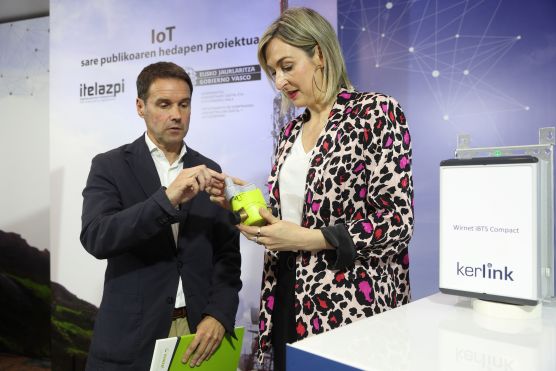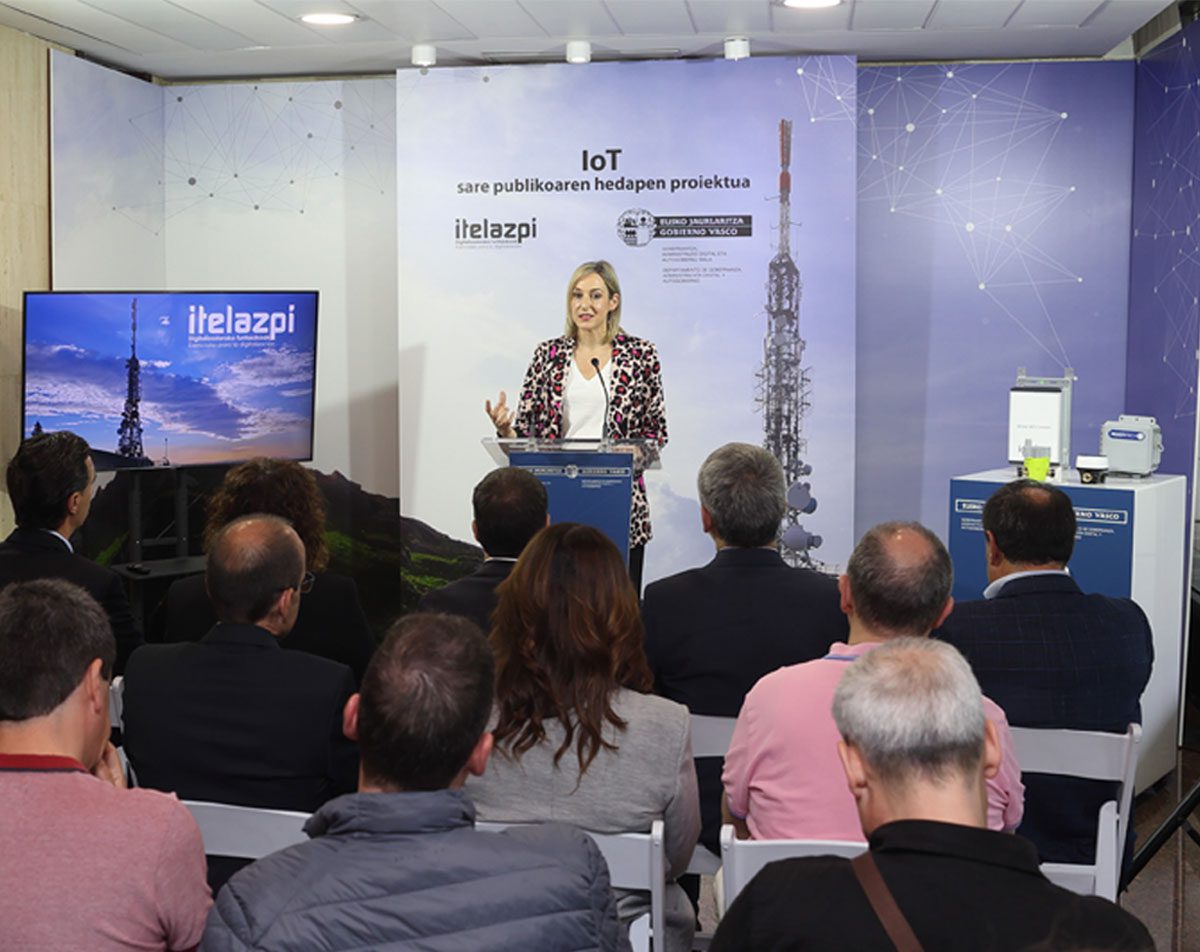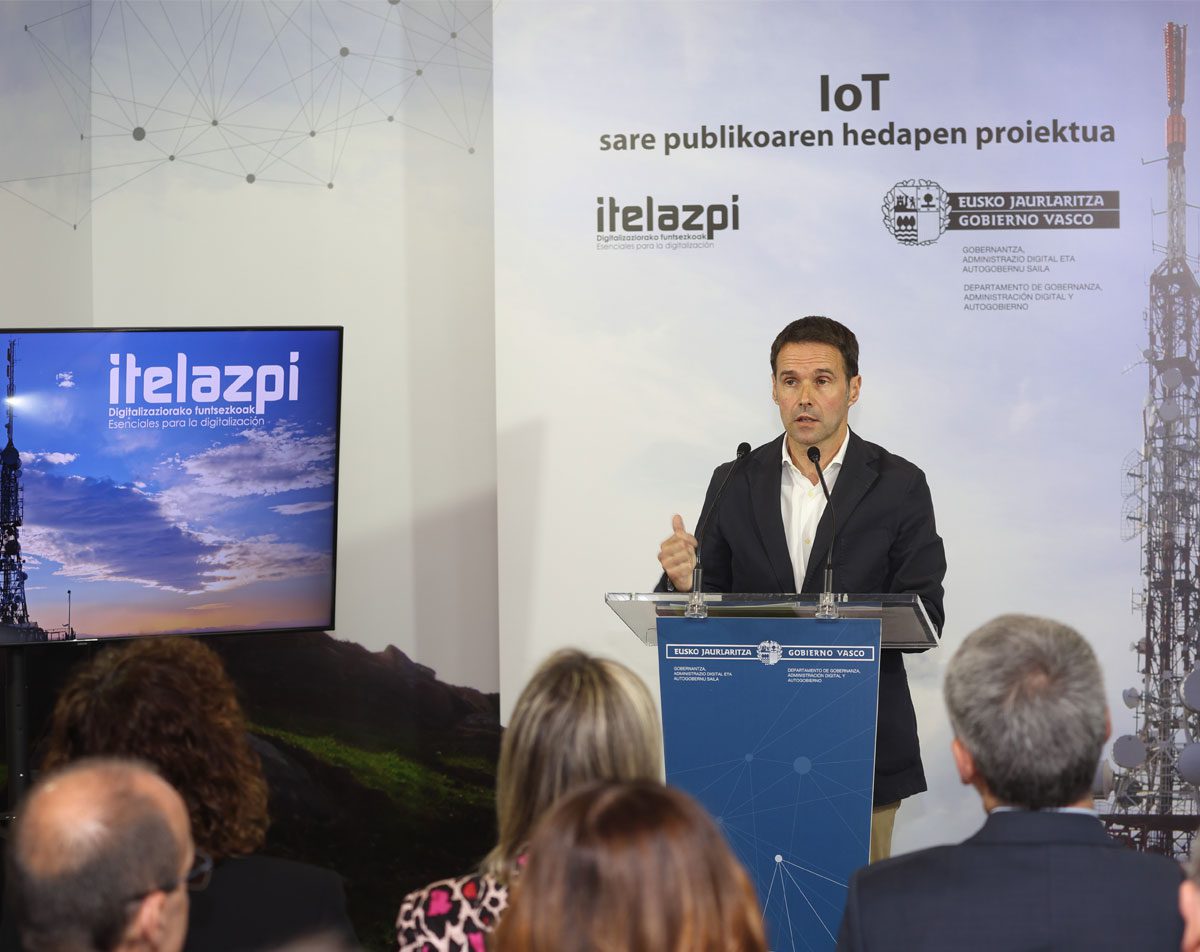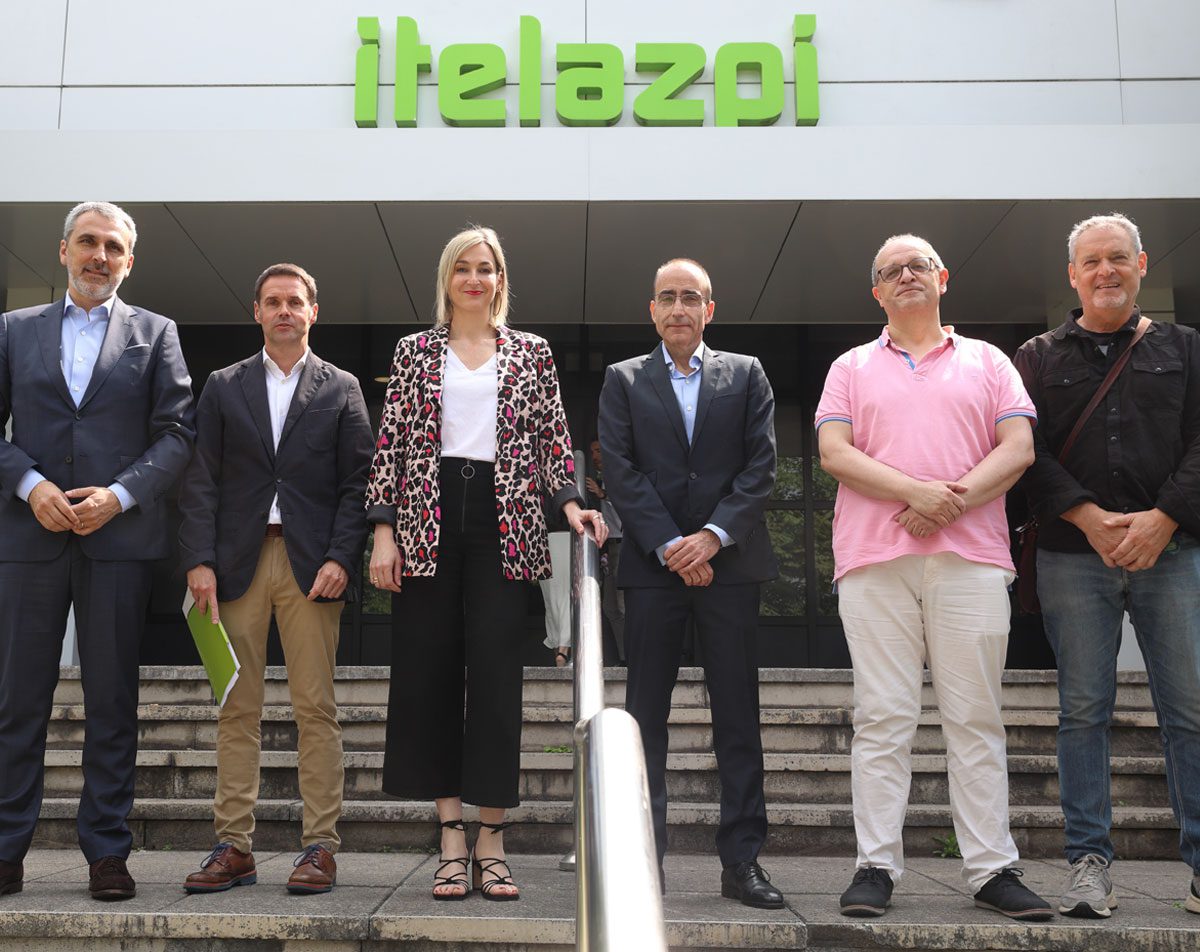The Basque Government presents the project to roll out the Basque Country’s public IoT network with the aim of connecting more than 300,000 sensors to the network by 2028

The IoT network, Internet of Things, is a wireless communications network deployed by Itelazpi that allows information to be collected through sensors for data-driven decision-making.
The network currently has 68% coverage with 362 coverage points and is expected to reach 90% coverage with 500 coverage points and more than 300,000 sensors connected to the network by 2028
Ubarretxena has described the project as a national project, ‘a strategic commitment that places the Basque Country at the forefront of the deployment of the IoT network at European level with a public network at the service of all citizens’.
The Minister for Governance, Digital Administration and Self-Government, Maria Ubarretxena, together with Xabier Zubiaur, Director General of Itelazpi, the Basque Government’s public telecommunications company attached to this department, presented the project for the deployment of the IoT or Internet of Things network.


This public communications network from Itelazpi allows information to be collected for data-based decision-making and is made up of the following elements: sensors, which generate and transmit data; the antenna network, which has a dual function of providing coverage and transporting data; and software, which receives the data and allows it to be used.
Itelazpi provides public administrations with the network that covers the project by deploying new coverage points (antennas) that allow data to be transported to its final destination. Public entities, for their part, are responsible for installing the sensors and developing the software, according to their needs.
Project development
Itelazpi began to roll out its IoT network implementation strategy, based on LoRaWan technology, in 2018. Throughout 2020, various pilot projects were carried out with the Bilbao Bizkaia and Gipuzkoako Urak Water Consortiums for the digitisation of water meter readings using sensors, and in 2021 a larger network deployment began. Currently, network coverage is 68% with 210,654 sensors connected to 362 coverage points. Of these, 39 are in Araba, 176 in Bizkaia and 147 in Gipuzkoa.
The objective during this legislative term is the mass deployment of the public IoT network to achieve a comprehensive, high-density network that is balanced across the three territories. As things stand, by 2028, network coverage of 90% is expected to be achieved in the Basque Country with 500 coverage points and more than 300,000 connected sensors, with the aim of promoting the digitisation of public management processes at all levels of the Basque Administration for greater efficiency through the use of a public communication infrastructure that responds to the needs of citizens and businesses. 000 connected sensors, with the aim of promoting the digitisation of public management processes at all levels of the Basque Administration for greater efficiency, through the use of a public communication infrastructure that responds to the needs of the administrations and society as a whole.
A commitment and a national project
Councillor Maria Ubarretxena described the project as ‘a strategic commitment that will place the Basque Country at the forefront of Europe in the deployment of the IoT network’. ‘A public network that is a benchmark in Spain,’ she continued, ‘in terms of percentage, coverage, connected devices, ambition and scale’. ‘A fully public network at the service of the public, which will enable us to promote more efficient management in terms of prevention, sustainability and environmental conservation, and improve people’s quality of life,’ she emphasised.

Current and potential uses
‘The objective from the outset has been to implement a single public IoT network at the service of the entire administration; we are currently collaborating with 36 Basque municipalities and 15 public entities, with different use cases already in development, including the deployment of smart water meters by the Water Consortiums, which is undoubtedly the ‘killer application’; The IoT network seeks to support municipalities in developing Smart City projects,’ said Xabier Zubiaur.
Among the institutions and entities involved are the Provincial Councils, the Basque Government itself (through Hazi and Alokabide) and the water consortiums, in addition to the aforementioned town councils.
In addition to the digitisation of water meters, which not only allows remote meter reading but also controls the entire water cycle and detects possible leaks, new use cases are currently being developed, such as container filling control, early fire detection, livestock tracking and virtual fencing of grazing areas using sensor collars, and container fire detection. All these projects are highly relevant from a preventive and environmental conservation point of view, especially in light of the challenge of climate change.
Beyond the use cases, this network has great potential and countless applications, depending on specific needs: control of truck entry into industrial estates; control of low-emission zones; energy efficiency, noise and air quality measures; smart lighting management; optimisation of waste collection routes; parking control for traffic redirection; detection of misuse or control of parking time; control of flood-prone areas and elements; control of access, capacity and influence of people (from the point of view of security, tourism, commerce, etc.); pest control or maintenance of infrastructure such as stairs, ramps and lifts.
For this reason, the minister has highlighted and emphasised the potential of the IoT network, which ‘has endless possibilities and uses’. For this reason, the Basque Government has encouraged all Basque institutions, especially local councils, to join the IoT network so that they can include initiatives such as those described above or new use cases in their digital transformation plans, based on the infrastructure provided to the Basque public sector by Itelazpi for the improvement of public services, the modernisation and digitalisation of the territory, and the use of data for decision-making that benefits Basque society.




